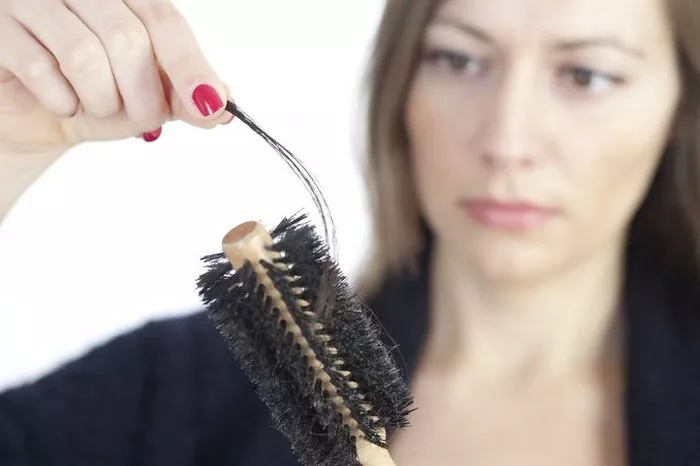Hair loss is a common concern for many individuals, and while genetics and hormonal factors play a significant role, certain chemicals in hair products can also contribute to this issue. In this article, we will explore the chemicals commonly found in hair products that have been associated with hair loss. With a focus on experience, professionalism, authority, and credibility, we will delve into the scientific aspects behind these chemicals and how they may impact hair health. Understanding these culprits can empower you to make informed decisions when choosing hair products and help protect your locks from potential damage.
1. Sulfates and Parabens
Sulfates are surfactants commonly found in shampoos, responsible for creating lather and removing dirt and oil from the hair. However, sulfates can be harsh on the scalp and hair, stripping away natural oils and leading to dryness and breakage, which may exacerbate hair loss.
Parabens are preservatives used to extend the shelf life of hair products. Some studies suggest that parabens can disrupt hormonal balance and potentially contribute to hair loss. While the research is inconclusive, opting for paraben-free products may be a safer choice.
2. Formaldehyde
Formaldehyde and formaldehyde-releasing preservatives are often found in hair smoothing and straightening treatments. These chemicals can weaken the hair shaft, leading to increased fragility and breakage, which may result in hair thinning and loss over time.
3. Phthalates
Phthalates are commonly used in fragrances, which can be present in hair products. Some research indicates that phthalates may interfere with hormone receptors, potentially impacting hair growth cycles and contributing to hair loss.
4. Alcohol
Alcohol is used in hair products as a solvent and preservative. While certain types of alcohol can be beneficial for hair, such as fatty alcohols, others, like denatured alcohol, can be drying and damaging to the hair cuticle, leading to hair breakage and loss.
5. Coal Tar and Sulfur
Coal tar and sulfur are ingredients often found in anti-dandruff shampoos. While effective in treating dandruff, these chemicals can be harsh on the scalp and may cause irritation or inflammation, which could indirectly lead to hair loss.
6. Silicone
Silicone is used in hair products to add shine and smoothness. While it provides a temporary cosmetic effect, silicone can build up on the hair shaft, potentially weighing it down and causing breakage.
How to deal with hair loss caused by using hair care products ?
Dealing with hair loss caused by using hair care products requires a careful and systematic approach to restore hair health. Here are some steps to address the issue:
1. Identify Problematic Products:
First, identify the hair care products that may be contributing to the hair loss. Look for products containing sulfates, parabens, formaldehyde, phthalates, alcohol, coal tar, sulfur, or silicone, and consider eliminating them from your hair care routine.
2. Switch to Hair-Friendly Products:
Opt for hair care products specifically designed to promote hair growth and health. Choose sulfate-free, paraben-free, and silicone-free shampoos and conditioners enriched with natural ingredients like biotin, keratin, and essential oils.
3. Consult a Professional:
If the hair loss persists, consult a dermatologist or trichologist to determine the underlying cause and receive personalized treatment recommendations.
By adopting a holistic approach, you can minimize hair loss caused by hair care products and foster a healthier environment for your hair to thrive.
Conclusion
While hair loss can be influenced by various factors, the chemicals present in hair products can play a role in exacerbating the issue. Sulfates, parabens, formaldehyde, phthalates, alcohol, coal tar, sulfur, and silicone are among the chemicals that have been associated with hair loss. As consumers, it is essential to be mindful of the ingredients in our hair products and opt for more hair-friendly alternatives. Choosing products free from harmful chemicals and enriched with nourishing, natural ingredients can help protect and promote healthier hair. Remember, consulting with a hair care professional or dermatologist can provide personalized insights and recommendations for maintaining optimal hair health and addressing any specific concerns related to hair loss. With this knowledge, you can make informed choices to safeguard your tresses and maintain a vibrant and healthy head of hair.


